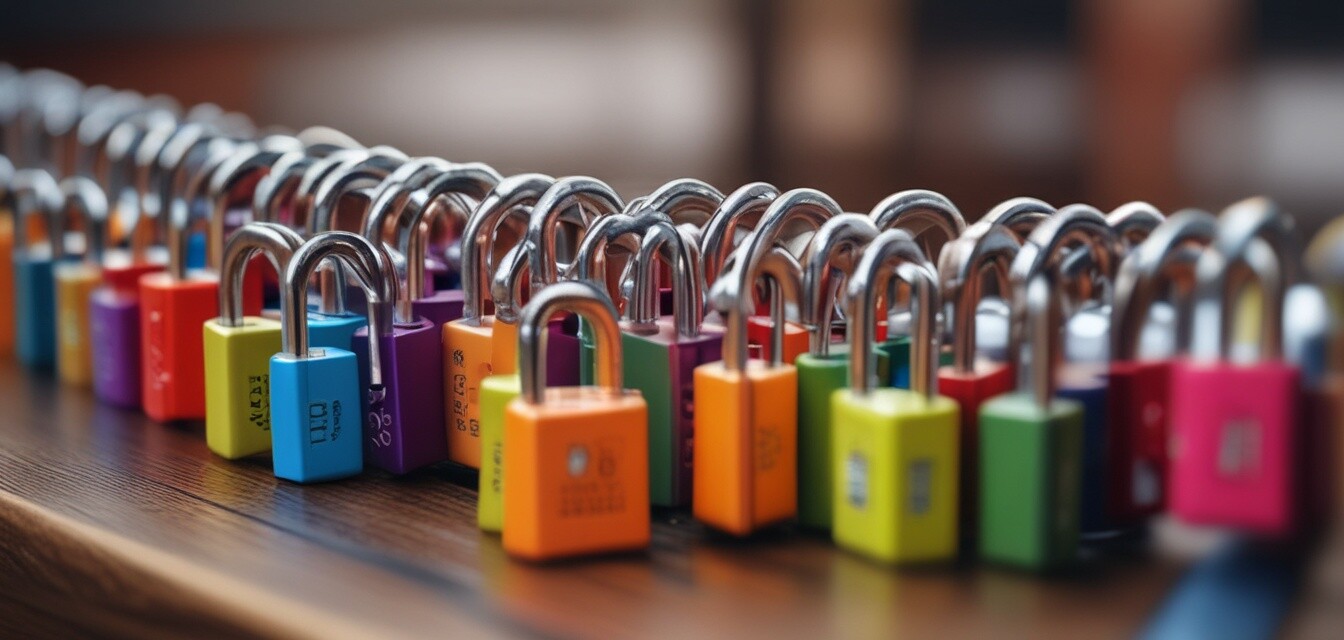
How to Choose the Right Luggage Lock for Security
Key Takeaways
- Understand different types of luggage locks.
- Consider the level of security needed for your trip.
- Check compatibility with luggage zippers.
- Think about travel restrictions regarding locks.
- Choose a lock that suits your travel style and needs.
When it comes to traveling, ensuring the safety of your belongings is paramount. A reliable luggage lock can provide peace of mind, protecting your items from theft or accidental opening during transit. With numerous options available, understanding how to choose the right luggage lock is crucial for any traveler. Below, we will guide you through the different types of luggage locks and help you find the best one for your security needs.
Types of Luggage Locks
There are several types of luggage locks, each designed to address different security needs. Here’s an overview of the most common options:
| Type of Lock | Description | Best For |
|---|---|---|
| Combination Locks | Locks that require a numeric code to unlock. | Frequent travelers who prefer not to carry keys. |
| Key Locks | Locks that require a physical key to open. | Travelers who want simpler security without code memorization. |
| TSA Locks | Locks that can be opened by TSA agents using a master key. | Travelers in the U.S. who want to prevent unauthorized access. |
| Cable Locks | Locks with a flexible cable that can connect multiple zippers. | Travelers needing to secure multiple bags together. |
Factors to Consider When Choosing a Luggage Lock
Choosing a luggage lock might seem straightforward, but there are several factors you'll need to consider to ensure that you are making the right choice for your travel needs:
- Security Level: Evaluate the security level based on your travel destination and how often you'll be in public spaces.
- Compatibility: Ensure the lock fits your luggage zippers properly and doesn't interfere with the design.
- Travel Restrictions: Understand any regulations around locks in countries you plan to visit. For example, some airports may require TSA locks.
- Portability: Choose a lightweight and compact lock that won't add excess weight to your luggage.
- Durability: Look for materials that can withstand wear and tear, especially in the bustling travel environment.
How to Use a Luggage Lock Effectively
Once you've selected the perfect luggage lock, using it effectively is key to maximizing your security. Here are a few tips on how to make the best use of your lock:
- Lock Everything: Always lock your luggage, even if it’s just for a quick stop. This includes zippers and compartments.
- Use Multiple Locks: For increased security, consider using more than one lock on your bag or securing multiple bags together.
- Keep the Key Safe: If using a key lock, keep the key in a safe but accessible place to avoid losing it.
- Hide the Lock: Conceal your lock as much as possible. A lock that's out of sight is less tempting to would-be thieves.
- Check Local Regulations: Ensure you understand the rules regarding luggage locks in your destination, particularly if traveling internationally.
When Not to Use a Lock
While locks are essential for security, there are instances when using them may not be necessary or advisable:
- When flying on domestic flights in the U.S., where TSA agents may need to inspect your baggage.
- If traveling to destinations with prevalent theft incidents, consider using alternative security measures.
- When carrying items that are easily replaceable or not valuable, such as clothes or basic toiletries.
Alternatives to Luggage Locks
If a lock isn't ideal for your situation, consider these alternatives:
- Luggage Straps: These can help secure zippers and keep luggage from opening accidentally.
- Personal Tracking Devices: Small gadgets that can help locate your luggage in case of loss.
- Security Ties: These disposable ties can temporarily secure zippers and are useful for additional protection.
Tips for Beginners
- Always test your lock before traveling to ensure you remember the combination or have the key handy.
- Consider personalizing your luggage with brightly colored straps or tags to make it easily identifiable.
- Keep your luggage ticket and any necessary paperwork in a secure but accessible pocket.
Pros
- Provides peace of mind during travel.
- Discourages theft and tampering.
- Easy to use and convenient options available.
Cons
- Some locks may not be TSA-compatible.
- Can be cumbersome if carrying multiple bags.
- Not foolproof; determined thieves may still find a way.
By following the guidelines outlined in this article, you can select the right luggage lock that suits your travel needs. Remember, having a secure lock on your luggage can make your travels smoother and your belongings safer. To learn more about making informed choices for your travels, check out our Buying Guides section for helpful insights.
Enjoy your travels and stay secure!